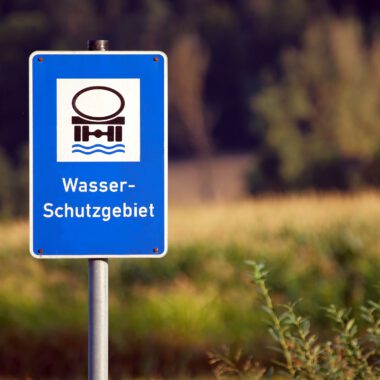
We are happy to announce that the junior research group ‘regulate’ was finally launched in early September and we are thrilled to start working!
New junior research group ‘regulate’
Research for sustainable groundwater management in Europe
Groundwater is the most important drinking water resource worldwide and at the same time a unique habitat for animal species. However, the conservation of this valuable resource is neglected both locally and globally. This particularly applies to some hotspot regions in Europe, where groundwater is polluted and where more water is extracted than recharged. But the pressure on the aquifers is not only caused by on-site activities. Supra-regional effects also contribute to overuse. These remote effects are what the junior research group ‘regulate’, led by ISOE – Institute for Social-Ecological Research will examine, with the aim of finding solutions for sustainable groundwater management in Europe. The research group is funded by the German Federal Ministry of Education and Research (BMBF).

Extreme heat and low precipitation: In the summers of 2018 and 2019 not only Southern Europe was subject to droughts. In northern Europe, too, the ‘summers of the century’ led to severe droughts. The first half of 2020 has once again proven to be too dry, so as a consequence groundwater levels have not yet recovered in many regions. ‘In addition to the issue of insufficient European groundwater resources, quality is increasingly becoming a problem. This results in conflicts over the resource, for example between agriculture, drinking water supply and nature conservation’, says ISOE water expert Fanny Frick-Trzebitzky. About a quarter of all European groundwater bodies are in a chemically poor condition, with nitrate playing a decisive role. ‘It is obvious that the current requirements of the European Groundwater Directive are not sufficient to guarantee the sustainable use of this valuable resource’.
Under the leadership of Fanny Frick-Trzebitzky and Robert Lütkemeier from ISOE, the junior research group ‘regulate’ wants to help ensure that the complex interdependencies that are contributing to the negative development of the European groundwater systems are better understood. ‘We know that certain types of use and economies as well as population dynamics and the consequences of climate change affect the quality and availability of groundwater’, says Robert Lütkemeier, ‘but the exact connections, especially between local water withdrawals and regional effects, so-called telecouplings, have not yet been examined’. The research group with four doctoral researchers is a cooperation between ISOE, Goethe University Frankfurt and University of Koblenz-Landau.
Groundwater, the invisible resource: recommendations for a European water policy
In September 2020, the junior research group has started working with the aim to investigate the manifold telecouplings to be found in connection with groundwater. The interdisciplinary team will consider hydrological, geographical, ethnological and ecological perspectives. They will particularly look at socio-economic and political processes in Europe, with a focus on the problems of drought, nitrate pollution and resulting conflicts. ‘To investigate the background of the current use of groundwater also means to analyse the weaknesses of current European water policy and to point out possible adaptations’, says Lütkemeier. ‘Conclusions for sustainable management can then be developed for water authorities as well as for user groups such as agriculture, water companies, and industry.’ In short, ‘regulate’ aims to find application-oriented recommendations for a sustainable use of the invisible resource. ‘For this purpose we also involve stakeholders from politics, water management, industry and agriculture in the research process’, explains Frick-Trzebitzky. ‘The practical results should then be available to other regions of the world and may serve as a blueprint for sustainable groundwater management.’
